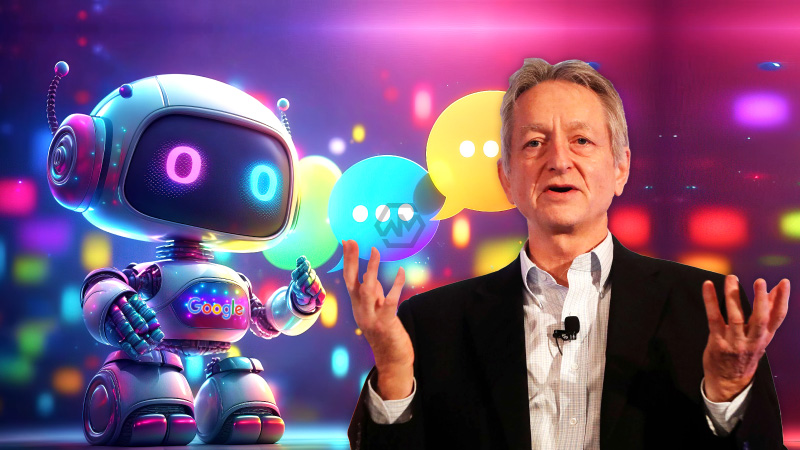The “Godfather of Artificial Intelligence,” Geoffrey Hinton, resigned from his roles as Vice President and Engineering Fellow at Google in April on worries that the company would loosen ethical guidelines governing AI. Concerns over Google’s capacity to compete with OpenAI and Microsoft in the AI space led to his departure.
Hinton’s desire to promote more open and unrestricted discussion of the potential perils of AI was the main factor in his decision to quit Google.
Godfather of AI
In the short term, according to Hinton, generative AI will cause the spread of incorrect information, with long-term effects affecting many facets of daily life. AI may become increasingly unmanageable if governmental organizations, regulatory organizations, and technology businesses are not ready with the necessary legislation and effective control methods.
Hinton is worried about the rapid advances in generative AI, which are challenging for humans to foresee. The corporation will continue to take a responsible stance and develop regulatory mechanisms to address any concerns, according to Google’s Chief Scientist Jeff Dean.
- The “Godfather of AI,” Geoffrey Hinton, resigned from his role at Google in April.
- Hinton is worried about the rapid advances in generative AI, which are challenging for humans to foresee.
- Hinton was a key figure in the development of backpropagation and contrastive divergence algorithms.
However, Google’s official position is to centralize AI research resources as a result of the company’s recent integration of DeepMind and Google Brain.
Hinton is well known for his contributions to the field of neural network computing, and he was a key figure in the development of backpropagation and contrastive divergence algorithms.
A lot of people in the technology industry and government organizations have recently raised alarm about the speed at which generative AI is developing, which may result in a lack of rules and control measures, possibly leading to an uncontrollable spiral of AI development.
However, a lot of tech firms have reacted by saying they don’t think AI development should be slowed down and highlighting the fact that there are enough controls and regulations in place to prevent uncontrollable situations.



